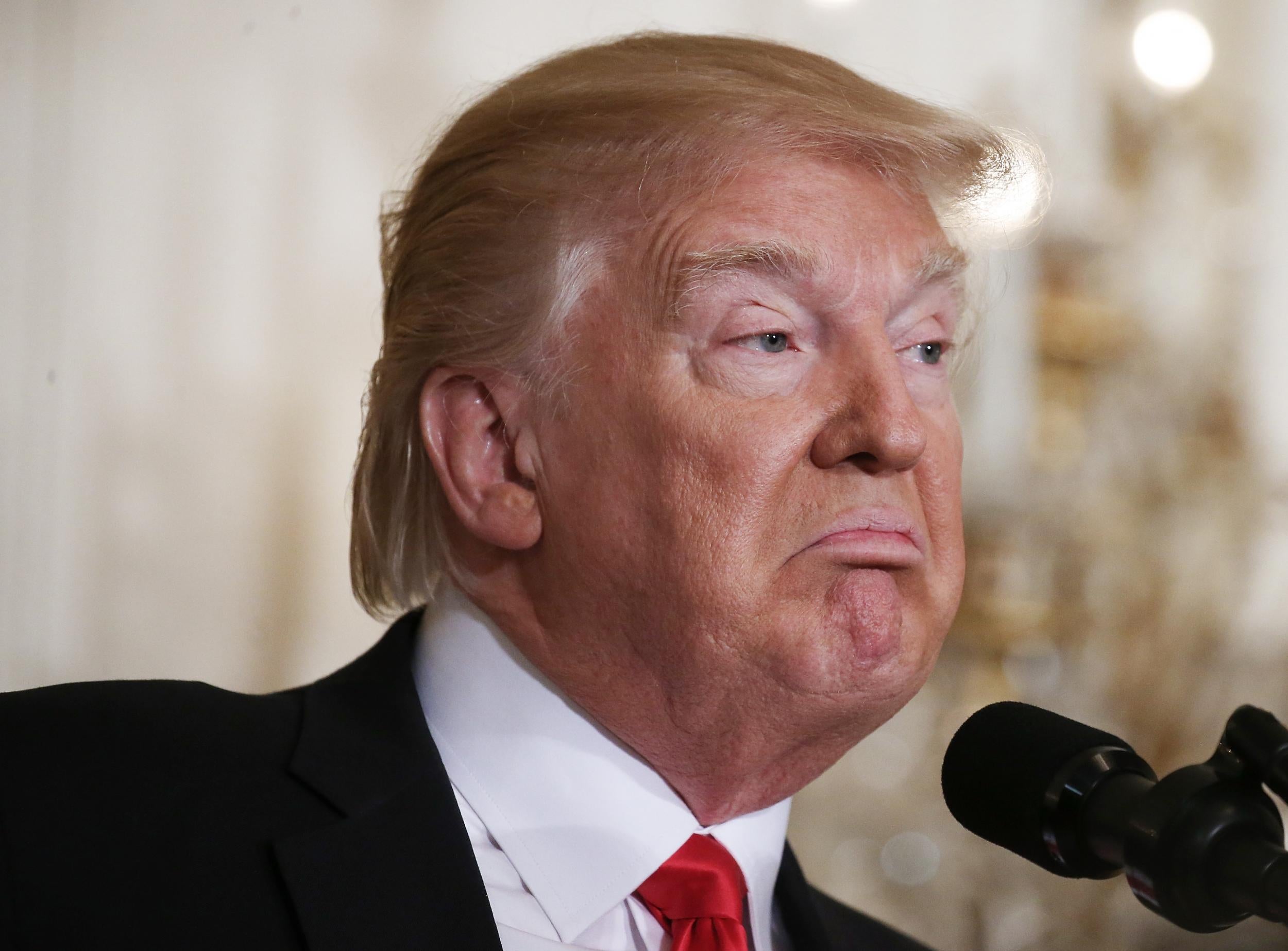Trump promises to burn banking regulation, but Wall Street doesn't buy it
The promise of a "major haircut" to America's Dodd-Frank reforms will probably end up as more of a light trim

Fresh from the failure of his healthcare bill, Donald Trump has moved on to another of the promises made at his inauguration: tearing up the banking regulations that are holding the American economy back.
The President has told US business leaders he’s planing “a very major hair cut on Dodd-Frank”, the reforms brought in in the wake of the financial crisis that nearly killed the American, not to mention the global, economy, and understandably led to cries of “never again”.
“Far beyond recommendations, we’re going to be doing things that are going to be very good for the banking industry so that the banks can loan money to people that need it,” the President said. “The regulators are running the banks, so we’re going to do a very major haircut on Dodd-Frank.”
Hang on, aren’t we supposed to despise bankers and Wall Street elites? Apparently not now Mr Trump is in the White House.
Never mind. The mere prospect of doing away with Dodd-Fank should, in reality, horrify anyone around during 2007-2008.
David Buik, Panmure’s City commentator, sums it up brilliantly: “The financial crisis nearly crashed the global economy. It destroyed the workforce of the US, taking unemployment up to 8 per cent and decimated many regional banks.
“I find myself incredulous that anyone would want to go back to that. Nobody wants too much regulation, but the public needs protection from what happened in 2008.”
Here, here.
Some of America’s banks, however, see things rather differently. Jamie Dimon, the boss of JP Morgan, has repeatedly attacked the reforms in his lengthy letters to shareholders published in his bank’s annual reports.
Trump’s latest statements should be music to his ears. Music to the ears of a divided Republican Party too, I’d imagine.
It couldn’t reach agreement on the President’s plans to reform the hated Obamacare with a new healthcare bill, with moderates fearing it went too far, and free market fundamentalists complaining that it didn’t go far enough, combining with a unified Democratic Party to inflict a major defeat on the new administration.
Tearing up regulations in favour of business, however? That’s Republican red meat, something that might persuade a fractious party to come together in support of the President’s agenda. Bringing it forward represents clever politics.
You might expect Wall Street to be positively drooling at the prospect, but if so, you would be wrong. Investors in the big banks on the Street of Dreams barely took notice. Their shares have basically flatlined since the “Trump bump” immediately after his election, and that looks set to continue. Perhaps it’s because investors aren’t as stupid as some of the people that watch Fox News.
No less than Jes Staley, the American chief executive of Barclays, and a former Dimon lieutenant, argued that it would be a “good thing for Dodd-Frank to remain in place” at the beginning of last month.
Horribly complex and unwieldy the legislation might be, but everyone is now used to it. They know where they are with it. It is an accepted part of the world’s financial infrastructure, and the world’s financial institutions have mostly made their peace with it, finding ways to work with it.
That includes American banks like JP Morgan, which are hardly going hungry. They are hugely profitable, and relatively secure. Why put that at risk?
There is hope for those that don’t want to in the reaction of US banking shares to President’s words. Or the non reaction.
Even those calling for sweeping reforms of financial regulation in the hope that it will turbo charge the sector will be well aware that detail has never been one of the Donald’s strong points. The job of reforming Dodd Frank will be left to others.
It won’t be an easy task for them and at least some might see the dangers posed by the law of unintended consequences in what they do, the damage that could be caused by disrupting the current system.
Business news: In pictures
Show all 13Trump’s bombastic rhetoric doesn’t always match up to reality. Okay, okay. Trump’s rhetoric doesn’t often match up to reality. Okay, okay. Trump’s rhetoric almost never matches up to reality.
If that holds true in this case, we might expect to see some tweaks to Dodd-Frank that will be sold as something more than they actually are, and that other Republicans will enthusiastically endorse. Four-fifths of not very much: now let's get back to business.
For the sake of the global economy, and the financial health of all of us, we’d just better hope that I’m right about that.
Subscribe to Independent Premium to bookmark this article
Want to bookmark your favourite articles and stories to read or reference later? Start your Independent Premium subscription today.

Join our commenting forum
Join thought-provoking conversations, follow other Independent readers and see their replies